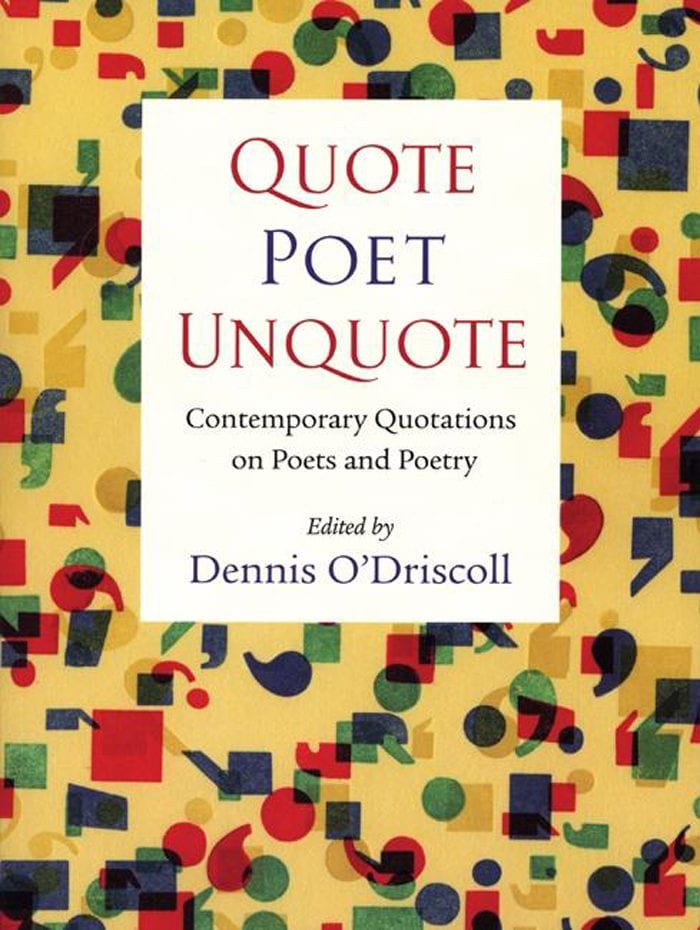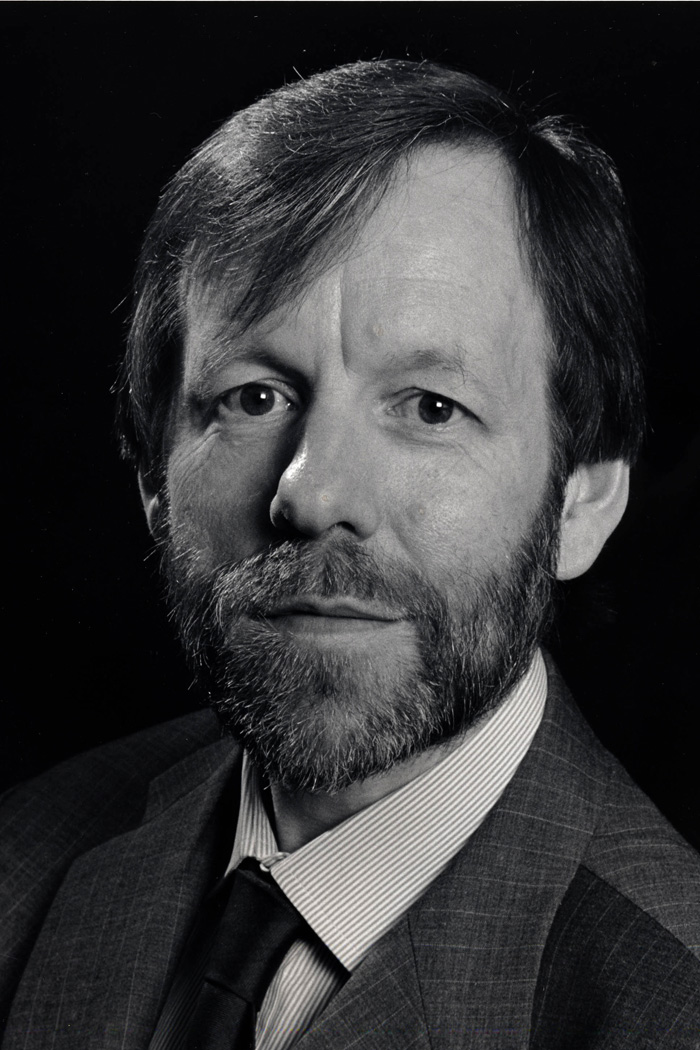
In 1987, Dennis O’Driscoll began collecting contemporary remarks that “cut to the nub of some poetry-related topic or put a bright new gloss on old chestnuts.” His habit evolved into a regular and very popular column, “Poetry Pickings and Choosings.” Quote Poet Unquote offers multiple (and often conflicting) responses to myriad questions about poetry, poetics, and the writing process. As O’Driscoll writes in his introduction: “This is a populous and polyphonous book, too–a chorus of hundreds of voices… from daily newspapers and literary monthlies, radio broadcasts and weblogs, small-circulation poetry periodicals and sources as unlikely as the Irish Farmers Journal, Vogue, and Harper’s & Queen… Some of these quotations are so eloquent in construction and so economic in language as to come close to the status of poetry itself.”
ISBN: 9781556592706
Format: Paperback
from the Back Cover (I)
Reviews
“[P]lenty of the quotations O’Driscoll has scooped out of interviews and essays are fleet and funny.” —Paper Cuts
“… it’s great fun to see so many points of disagreement over so many aspects of poetry in such a small space… These quotes cover the whole range of ideas, opinions, and controversies concerning contemporary poetry and the poetic life, from inspiration to publication to public readings to criticism to prizes.” —Library Journal
“Up and down and sideways and backwards, Quote Poet Unquote is a handy and delightful ars poetica as well as a reminder that ‘Poetry is rarely a victimless crime.'” —Foreword
“Dennis O’Driscoll is one of Ireland’s most respected critics of poetry.” —Times Literary Supplement
“Michael Wiegers… has an instant winner on his hands… argumentative, high-spirited, intelligent, and provocative as any good conversation ought to be… Fascinating how, in one or two sentences, so much can be said about poetry—its ways of ‘being,’ its resistance to ‘meaning,’ its value, and its values… Quote Poet Unquote is the perfect book for writers who have honed their craft, precisely because it does not deal with craft. It deals with the effects of craft, the thing the poem aspires to. It’s also ideal for the slightly more casual reader of poetry, who will find familiar feelings articulated in wholly new ways. And it’s especially good for critics or reviewers, since it reminds us that all our specifics must be in service to a generality, that our ‘job’ is to ferret out precisely these kinds of ideas and maybe even formulate some of our own… I want everyone to rush out and buy this book.” —Judith Kitchen, Georgia Review
